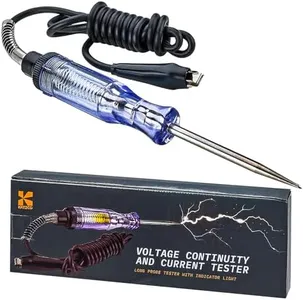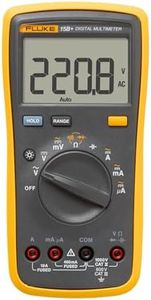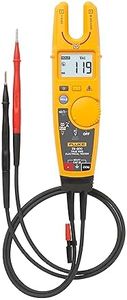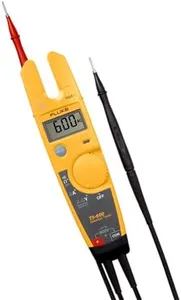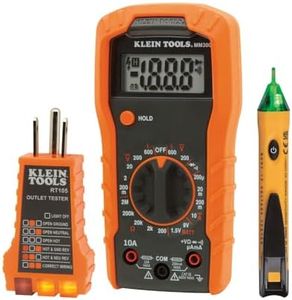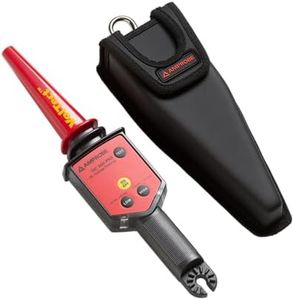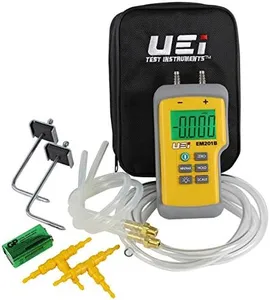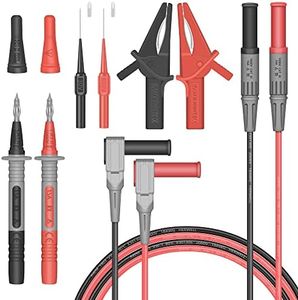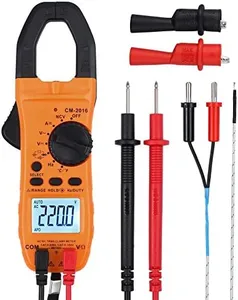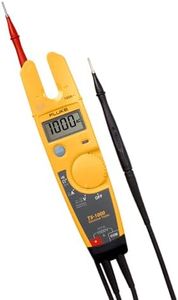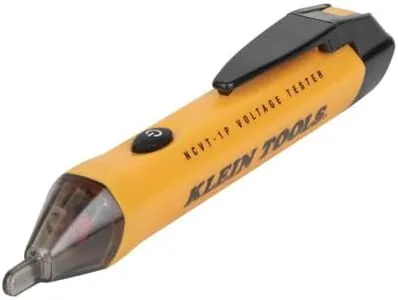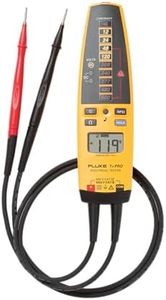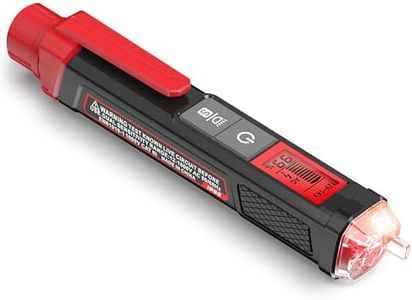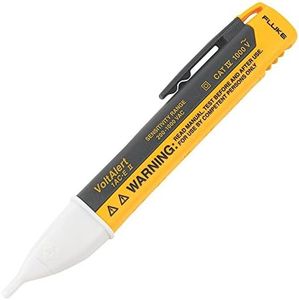10 Best Voltage Testers 2025 in the United States
Our technology thoroughly searches through the online shopping world, reviewing hundreds of sites. We then process and analyze this information, updating in real-time to bring you the latest top-rated products. This way, you always get the best and most current options available.

Our Top Picks
Winner
Fluke 15B+ Digital Multimeter, for Electrical Applications, Measures AC/DC Voltage and Current Measurements up to 1000V and 10A, Along with Resistance, Continuity, Diode, and Capacitance Capabilities
Most important from
534 reviews
The Fluke 15B+ Digital Multimeter is a reliable tool for electrical applications, offering a broad voltage range up to 1000V for both AC and DC, which makes it versatile for various tasks from automotive diagnostics to electrical panel work. Its capability to measure up to 10A of current is useful for detecting issues like overloading and short circuits. The addition of features like resistance, continuity, diode, and capacitance measurements further enhances its utility for troubleshooting a wide range of electrical issues.
The CAT III 600V safety rating is a significant advantage, ensuring a high level of protection when working on residential and commercial electrical systems. The build quality is robust, typical of Fluke products, and the device is relatively lightweight at 460 grams, making it easy to handle and carry around. However, users should be mindful that it is battery-powered, which means keeping spare batteries handy is essential to avoid downtime. Additionally, while the multimeter is adequately featured, some might find the display and indicators a bit basic compared to more advanced models that offer backlit displays or additional data logging functions.
The Fluke 15B+ is well-suited for electricians and hobbyists needing a dependable, all-around multimeter for a variety of electrical measurements.
Most important from
534 reviews
Fluke T6-600 Electrical Tester
Most important from
1256 reviews
The Fluke T6-600 Electrical Tester is a versatile tool designed for measuring voltage, current, and frequency. Its standout feature is the ability to measure voltage up to 600V without needing test leads, thanks to its open fork design with FieldSense technology. This makes it particularly safe and convenient for users, reducing the need to handle live wires directly.
The wide 17.8-millimeter open fork can handle wires up to 200 A on 4/0 wires, making it suitable for a range of industrial applications. The device is lightweight at 0.35 kilograms and powered by two included AA batteries, making it portable and easy to use in various environments. However, the Fluke T6-600 does have some limitations. It might not be suitable for very high voltage applications beyond 600V, and some users may miss the precision that traditional test leads provide.
The build quality is robust, consistent with Fluke's reputation for durable tools, and the safety ratings are high, ensuring reliable performance. Its display and indicators are user-friendly, providing clear readings. The Fluke T6-600 is ideal for those needing a reliable, safe, and efficient electrical tester for mid-range voltage applications.
Most important from
1256 reviews
Fluke T5-600 Electrical Voltage, Continuity and Current Tester, Measures Up To 100 A Without Contact, Automatically Select AC/DC Voltage For Tests, Includes Detachable SlimReach Probe Tip
Most important from
5204 reviews
The Fluke T5-600 Electrical Voltage, Continuity, and Current Tester is a versatile tool designed for electricians and DIY enthusiasts alike. One of its standout features is its ability to measure both AC and DC voltage up to 600V automatically, eliminating the need for manual switching between modes. This makes it user-friendly, especially for those who may not be as experienced with electrical testing equipment. Additionally, it can measure current up to 100A without making direct contact, which enhances safety and convenience during use.
The integrated continuity test and resistance measurement up to 1000Ω are also useful for troubleshooting electrical circuits and components. The detachable SlimReach probe tips are a thoughtful design, allowing work in tight spaces where other testers might not fit. With its rugged build, the tester is durable enough to withstand drops from up to 10 feet (3 meters), which is great for job sites where drops and rough handling are common.
The integrated protection circuit means it can stay connected to a voltage source longer than a typical solenoid tester, adding to its reliability and safety. One potential drawback is its weight; at 13.6 ounces, it might feel a bit heavy for some users during extended use. Despite this minor issue, the Fluke T5-600 remains a robust and dependable choice for those needing a reliable voltage tester.
